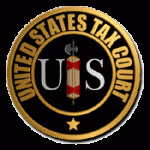 The Tax Court disallowed another charitable deduction for the donation of a façade easement in Boston’s South End Historic District. This time the decision was based on valuation principles, not technical foot faults, and the taxpayers were able to avoid certain penalties.
The Tax Court disallowed another charitable deduction for the donation of a façade easement in Boston’s South End Historic District. This time the decision was based on valuation principles, not technical foot faults, and the taxpayers were able to avoid certain penalties.
In Chandler v. Commissioner, 142 TC No. 16 (2014), the taxpayers owned two homes in Boston’s South End Historic District, the Claremont Property and the West Newton Property. The homes were purchased in 2003 and 2005, respectively. The taxpayers entered into an agreement in 2004 to grant the National Architectural Trust (“NAT”) a façade easement on the Claremont Property. They then executed a similar arrangement when they purchased the West Newton Property in 2005.
The taxpayers used an NAT recommended expert to value the easements. He valued the Claremont easement at $191,400 and the West Newton easement at $371,250. The taxpayers took charitable deductions related to the easements of more than $450,000 between 2004 and 2006.
The IRS did not challenge the easements’ compliance with §170(h). However, the IRS did allege that the easements had no value because they did not meaningfully restrict the taxpayers’ properties beyond the provisions under local law. The taxpayers’ countered that the easement restrictions were broader than local law because they limited construction on the entire exterior of the home and required the owners to make repairs. Local law only restricted construction on portions of the property visible from a public way and did not require owners to make repairs. The taxpayers’ also noted that the easement subjected the property to stricter monitoring and enforcement of the restrictions. The Tax Court, citing its recent opinion in Kaufman v. Commissioner, T.C. Memo 2014-52, (discussed below), rejected the taxpayers’ arguments because “buyers do not perceive any difference between the competing sets of restrictions.”
The only remaining issue was valuation. The taxpayers abandoned their original appraisals and presented new expert testimony at trial. The taxpayers’ new expert used the comparable sales approach to calculate a before value of $1,385,000 for the Claremont Property and $2,950,000 for the West Newton Property. The taxpayers’ expert chose seven properties for comparison: four properties in Boston and three properties in New York City. On the basis of data from these properties, he estimated that the taxpayers’ easements diminished the value of both properties by 16%.
The Tax Court found the taxpayers’ expert unpersuasive. The Court dismissed the three New York City comparables because they “tell us little about easement values in Boston’s unique market.” The court also found that three of the four Boston properties were “obviously flawed.” The Court took particular exception to the expert’s use of a comparable unencumbered property that was not actually unencumbered. The Court stated that the “error undermines [the expert’s] credibility concerning not only this comparison, but the entire report.”
The Tax Court also found the respondent’s expert report unpersuasive. The respondent’s expert examined nine encumbered Boston properties that sold between 2005 and 2011. He compared the sales prices immediately before and after the imposition of the easements. Each property sold for more after it had been encumbered by the easement. However, the expert failed to account for significant renovations that took place on many of the properties after they were encumbered. Thus, the Court found the expert’s analysis unpersuasive because “it does not isolate the effect of easements on the properties in his sample.” However, in the final analysis, the Court sided with the IRS and disallowed the taxpayer’s deductions.
However, the Court did accept the taxpayers’ reasonable cause defense for gross valuation misstatement penalties in 2004 and 2005. Unfortunately, the reasonable cause exception for gross valuation misstatements of charitable contribution property was eliminated with the Pension Protection Act of 2006, so the Court denied the taxpayers’ reasonable cause defense for the 2006 tax period.
Read the full opinion here: Chandler v. Commissioner, 142 T.C. No. 16

